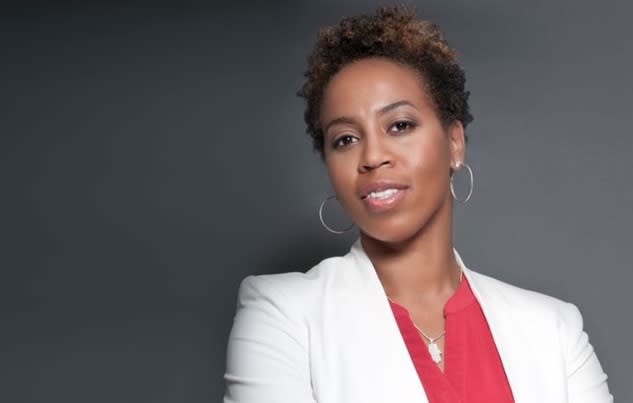WNBA great Chasity Melvin opens up about racial, gender stigmas: 'You don't have to justify your Blackness when you achieve success'

When the 2020 WNBA season tipped off last week, Chasity Melvin was on the sidelines in a different role than her pro debut two decades earlier. Instead of sinking free throws, the now 44-year-old was providing tactical improvements for members of the Phoenix Mercury as an assistant coach. The former All-Star who played 12 seasons in the league joined Phoenix in July after Penny Taylor stepped down from her position to spend more time with her toddler son.
Melvin was candid about facing instances of discrimination, whether racial or gender. She also opened up about how her faith has guided her, and how the WNBA is combating injustices while inside the bubble.
Yahoo Sports: With the COVID-19 pandemic and racial injustice both absorbing a lot of the news cycle, can you describe how your athletes are adapting to the changes and your thoughts on the progress being made so far?
Chasity Melvin: I think it’s great for both leagues to give players a choice to opt out if they don’t feel comfortable participating. I don’t believe executives should force athletes to do something that could hinder their safety. The various stories being shared by Black women in the WNBA are particularly inspiring. We’re all figuring out that we’ve all experienced instances of prejudice at one point in our lives, but under various circumstances. The women in the bubble are all opening up in ways I never imagined, swapping ideas on how we can support each other’s fight for equality right now and in the future.
The more conversations being had, the more change can begin. I’ve always believed that you don't have to justify your Blackness when you achieve success. Earning millions playing a sport doesn’t make you exempt from criticism. I remember my father always telling me: you can’t make the same mistakes other people make. I was raised to be a strong woman of faith and to speak my truth.
YS: Prior to writing your devotional book “At the End of The Day,” describe how you went about making decisions in your life. Was there a specific event that made you want to pursue a more faith-based lifestyle?
CM: My faith has played a huge part in every decision I make. My personal relationship with Jesus and my faith in God gave me the personal confidence to reach my professional endeavors. My grandmother raised me to give it all to God at an early age. As an adult, this is the motto I continue to live by and my faith is just as strong, if not stronger.
The Bible has so much wisdom and much of it relates to everything happening today. When I retired and took a 9-5 job, I began encountering incidents of discrimination at work. Those experiences provided insight to write my memoir and detail how my faith helped me battle depression. People equate religion with a church, minister, etc. That leads to criticism about their abuse of power or lack of accountability. But, faith is based on God’s love and love rules out everything else.
YS: As the much-needed conversation around women in sports continues, describe some of the personal struggles you’ve endured on your way to success and what advice would you give to women who are facing the same tribulations?
CM: As a Black woman, the most difficult part in my ascension was not having a voice. Despite earning success as a college and professional athlete, my 9-5 colleagues never saw me as their equal. For Black women facing those same conflicts, I encourage them to stand their ground and speak out the moment bigotry occurs.
Additionally, learn to be uncomfortable, remain grounded in your convictions and don’t succumb to negativity trending on social media. Anything you do should be done for yourself, not the approval of others. Remember everything shouldn’t be public information. If you decide to share personal opinions, understand there could be consequences.
YS: You’re returning to the WNBA in a different capacity. Describe how this experience differs from your tenure as a player. Anything you want to do as a coach you weren’t able to accomplish as a player?
It’s a bit surreal because I’m coaching players I've played against. Diana Taurasi is a legend, so that puts a bit of added pressure on myself to ensure what I’m telling her is improving her game. We’re really teaching them to develop chemistry early on. While it’s definitely a challenge holding the role of a coach and a mentor, I’m fully prepared for the responsibilities. Mentoring has always been a passion of mine, so combining that with the sport I love is an opportunity I’m not taking for granted.
We have a great team and there are a lot of brilliant ladies making sacrifices to play this game. We’re setting the precedent for college sports, hopefully leading by example. Not to mention, we’re making history doing so in the time of a global pandemic and the uprising of racial discrimination.

Pass Her the Mic is a series by Yahoo Sports that profiles Black women at the intersection of sports and race, discussing various topics ranging from racial injustice to athlete activism.
More from Yahoo Sports:

